2025
Translated version can be downloaded here.
Special thanks to Dian Barberena-Jonas for the amazing translation and Carmina Barberena-Jonas for copyediting!
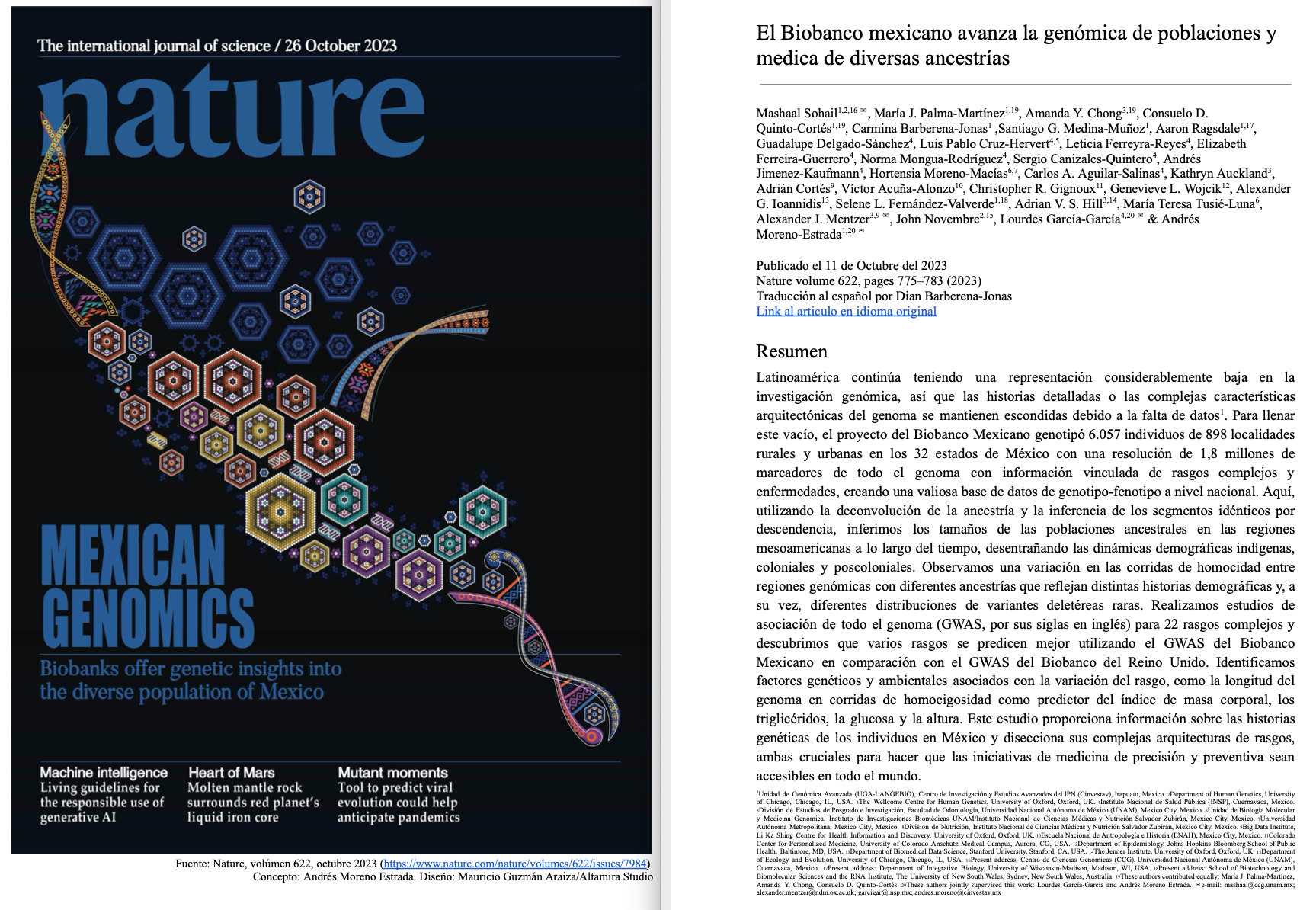
2023
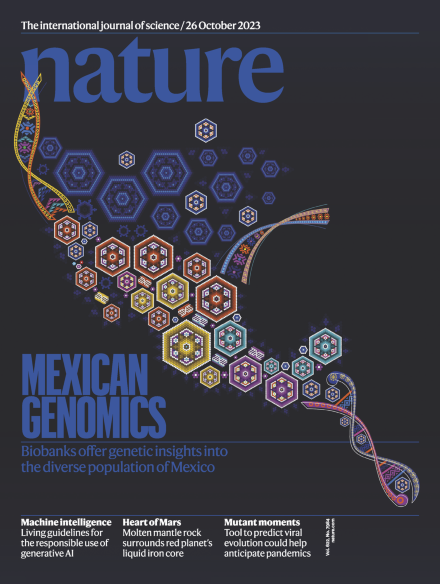 October 25. After a long time and hard work, the Mexican Biobank paper was finally published, in which Ph.D. students and postdoctoral fellows who passed through our laboratory were involved. Congratulations to our P.I. Andres Moreno for directing such an important work. What an honor that our work is on the cover of Nature.
October 25. After a long time and hard work, the Mexican Biobank paper was finally published, in which Ph.D. students and postdoctoral fellows who passed through our laboratory were involved. Congratulations to our P.I. Andres Moreno for directing such an important work. What an honor that our work is on the cover of Nature.
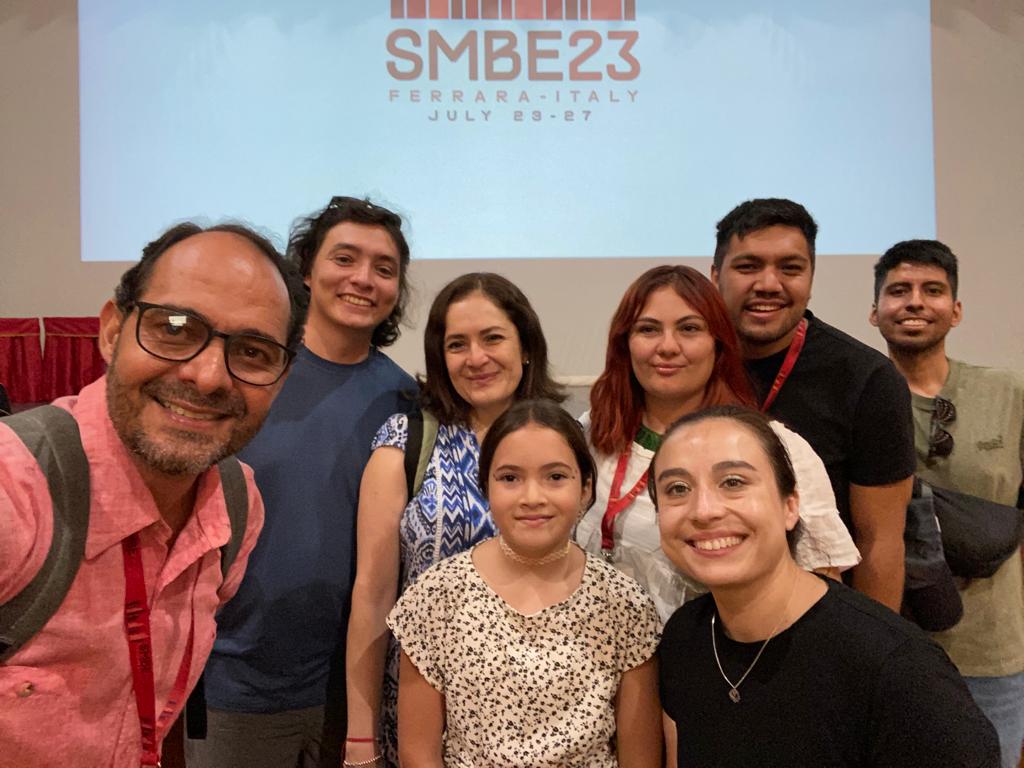 Our lab attended the SMBE2023 conference at Ferrara, Italy. Both Dr. Moreno and our students presented invited talks, discussed posters and had a lot of fun. See you in Puerto Vallarta, Mexico next year!!!.
Our lab attended the SMBE2023 conference at Ferrara, Italy. Both Dr. Moreno and our students presented invited talks, discussed posters and had a lot of fun. See you in Puerto Vallarta, Mexico next year!!!.
Dr. Moreno and Alex Ioannidis were interviewed this Spring by Stefan Milo to get insights about Polynesians reaching America some time ago (Our Nature Ioannidis et al, 2021 paper).
"De Chícharos y Habas" Scicomm podcast. ICDA Scientific plenary 2022: Genetic map keynote session. "Historias genómicas de pueblos originarios" podcast A Human Cell Map of Latin American Diversity Anthropology: Genomes across the Pacific To the ends of the Earth ‘No one could have predicted.’ DNA offers surprises on how Polynesia was settled Genetic Study Maps When and How Polynesians Settled the Pacific Islands Genetics reveal how humans island-hopped to settle remote Pacific Dr. Mashaal Sohail presenting results of the Mexican Biobank project at the 5th annual MEXPOPGEN meeting in December 2020.
Some Polynesians Carry DNA of Ancient Native Americans, New Study Finds Ancient voyage carried Native Americans’ DNA to remote Pacific islands Polynesians steering by the stars met Native Americans long before Europeans arrived Polynesians and Native Americans met 800 years ago after epic voyage Native Americans Crossed the Pacific Long Before Europeans Native Americans and Polynesians Met Around 1200 A.D. DNA reveals Native American presence in Polynesia centuries before Europeans arrived South Americans may have traveled to Polynesia 800 years ago Native Americans And Polynesians Intermingled Long Before European Colonization Native Americans Voyaged to Polynesia Long Before Europeans Reached the Americas, DNA Study Shows Native Americans, Polynesians in Contact 800 Years Ago, Genomic Study Indicates Polynesian and South American people met, interbred many centuries ago Indigenous Americans had contact with Polynesians 800 years ago, DNA study confirms Evidence found of epic prehistoric Pacific voyages Indigenous Americans had contact with Polynesians 800 years ago, DNA reveals Evidence uncovered Native Americans reached Polynesia 800 years before European explorers Native Americans reached Polynesia around 1200AD and BEFORE Europeans Study shows ancient contact between Polynesian and South American peoples 米先住民とポリネシア人、800年前に交流か DNA研究 Des croisements anciens entre Polynésiens et Amérindiens mis en évidence par la génétique International Common Disease Alliance Participation by Dr. Moreno-Estrada Biotweeps Twitter Conference 2018 Latin America's lost histories revealed [PDF] Mexpopgen3 Mexican scientists feel the Trump effect Andrés Moreno interviewed by renowned journalist Javier Solórzano The Mexican Biobank Project seeks Postdoctoral researchers [PDF] New Ancestry Service available at LANGEBIO Genomics Core Facility! Andrés Moreno as a Tinker Professor at Stanford in Spring 2017 Mexico Population Genomics Meeting 2017
South America paper selected for PLOS Collections!
Rosenkranz Prize Symposium celebrates young Stanford researchers improving health in developing countries
Andrés Moreno at the Rosenkranz Prize Symposium Simposio 'Ciencia y Humanismo II' de la Academia Mexicana de Ciencias Colloquium: María Avila, Universidad Nacional Autónoma de México, "The third root of Mexico: The genetic structure of Mexican of African descent." Henry Stewart Talk in The Biomedical & Life Sciences Collection Check out the upcoming SMBE meeting on admixed populations in San Antonio, TX! Podcast Interview with Carlos Bustamante and Andrés Moreno En Busca del Genoma Latino (Radio Show in English) Radio Interview on Diverse Mexican Genetics (Spanish) Sweeping diversity seen in Mexican genomes Mexico boasts a staggering genetic diversity, study shows Mexico Is Home to DNA That's a World Apart, Study Shows UCSF-Stanford study provides unique look at race Stanford researcher to expand DNA database by adding Latin Americans Naturally blond hair in Solomon Islanders rooted in native gene, study finds Genetic analysis of ancient 'Iceman' mummy traces ancestry from Alps to Mediterranean isle Y chromosome diversity in Native Mexicans Past climate change influenced human evolution Bustamante Lab at Stanford
Dr. Moreno was interviewed on a spotify podcast with the topic: "El galeón de Manila y el legado ancestral asiático en México" .
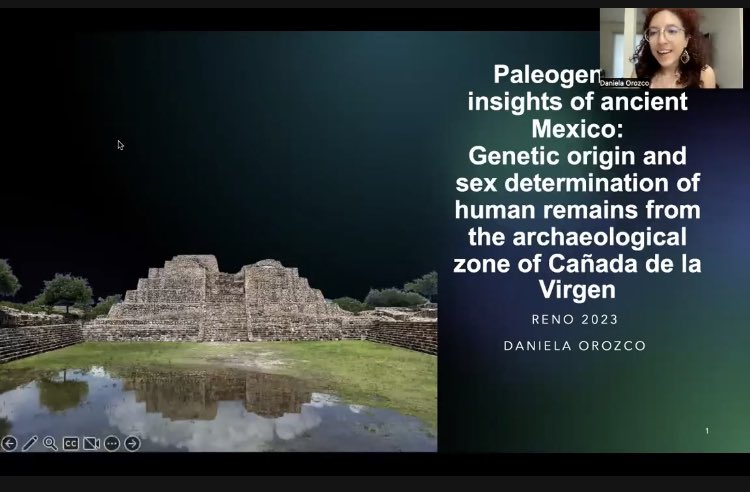 Our PhD candidate at the lab, Daniela Orozco, presented her work at The American Association of Biological Anthropologists (AABA) annual meeting in Reno, Nevada, with her work titled "Paleogenomic insights of ancient Mexico: Genetic origin and sex determination of human remains from the archaeological zone of Cañada de la Virgen".
Our PhD candidate at the lab, Daniela Orozco, presented her work at The American Association of Biological Anthropologists (AABA) annual meeting in Reno, Nevada, with her work titled "Paleogenomic insights of ancient Mexico: Genetic origin and sex determination of human remains from the archaeological zone of Cañada de la Virgen".
2022
Dr. Moreno attended the ICDA board plenary at Copenhagen, Denmark, to discuss genetic mapping advances in Latin America as a result of multinational collaboration.
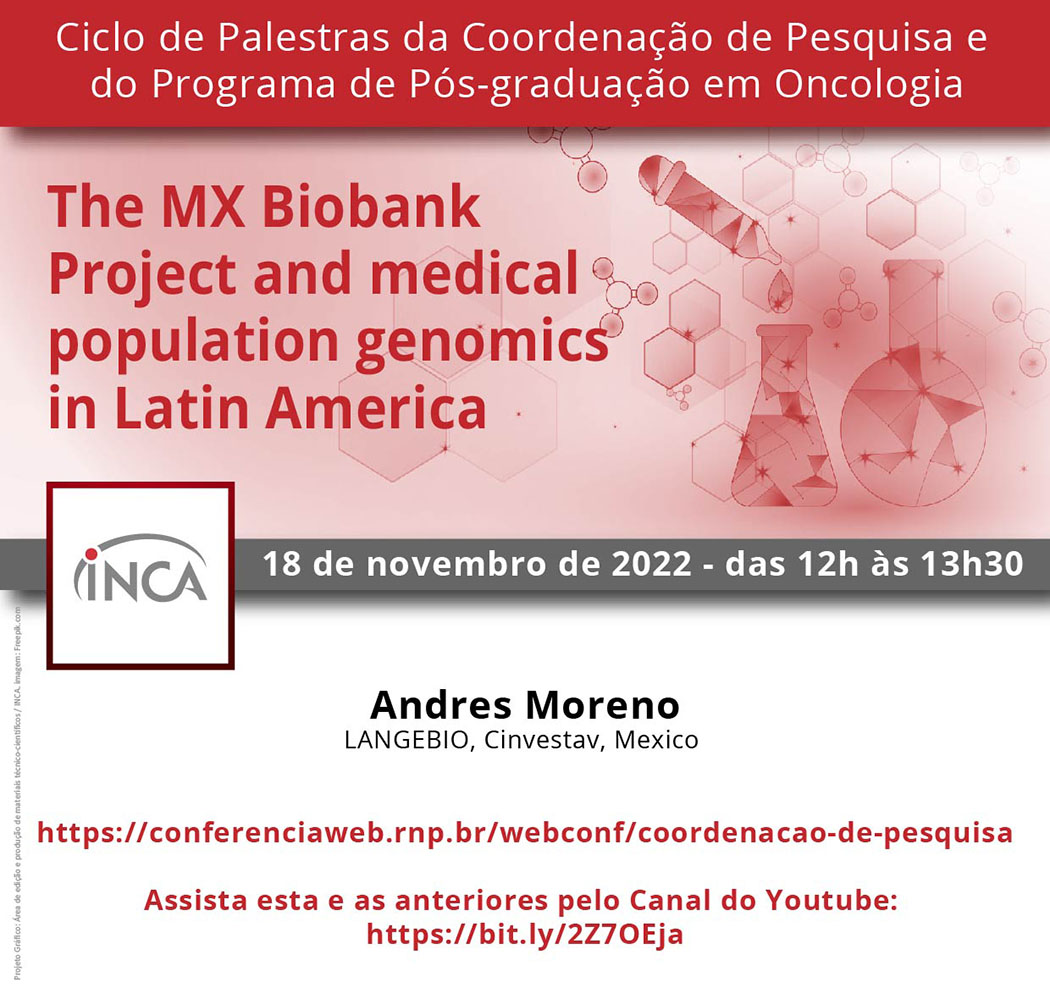 Dr. Moreno attended the INCA seminar series for the talk "The MX Biobank project and medical population genomics in Latin America".
Dr. Moreno attended the INCA seminar series for the talk "The MX Biobank project and medical population genomics in Latin America".
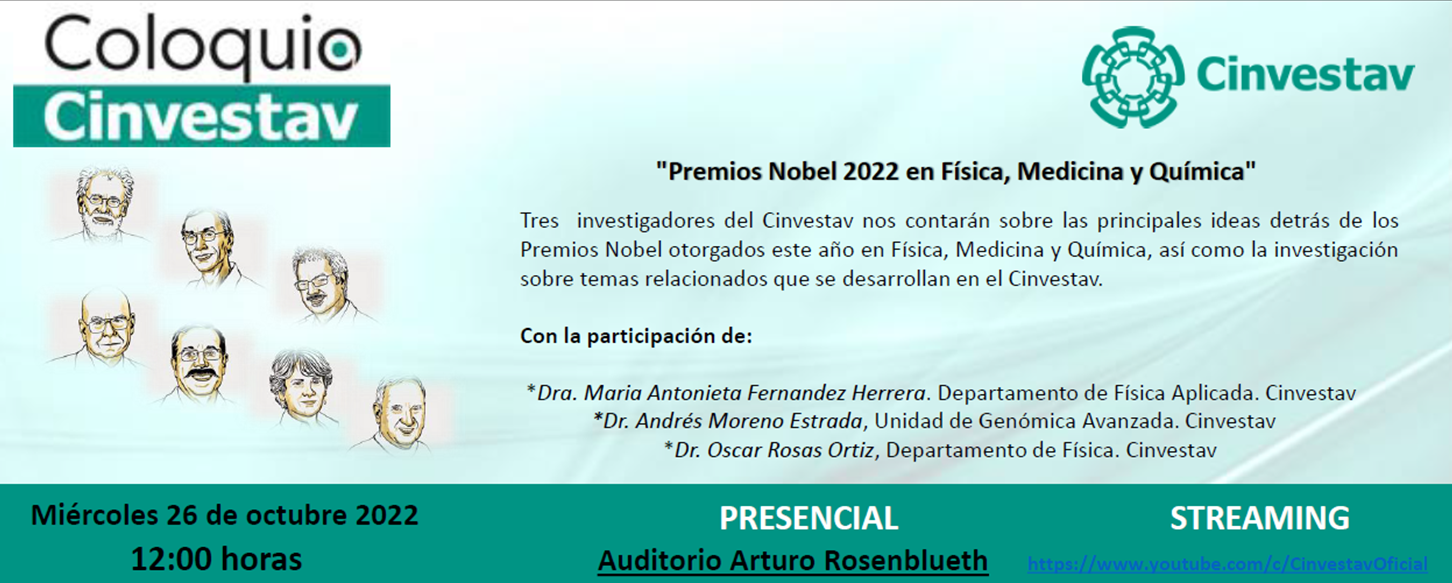 Dr. Moreno was invited to speak at our Institutional Colloquium, where he explained why the 2022 Nobel prize in Medicine was granted due to the sequencing of the Neanderthal´s genome and its implications medical conditions.
Dr. Moreno was invited to speak at our Institutional Colloquium, where he explained why the 2022 Nobel prize in Medicine was granted due to the sequencing of the Neanderthal´s genome and its implications medical conditions.
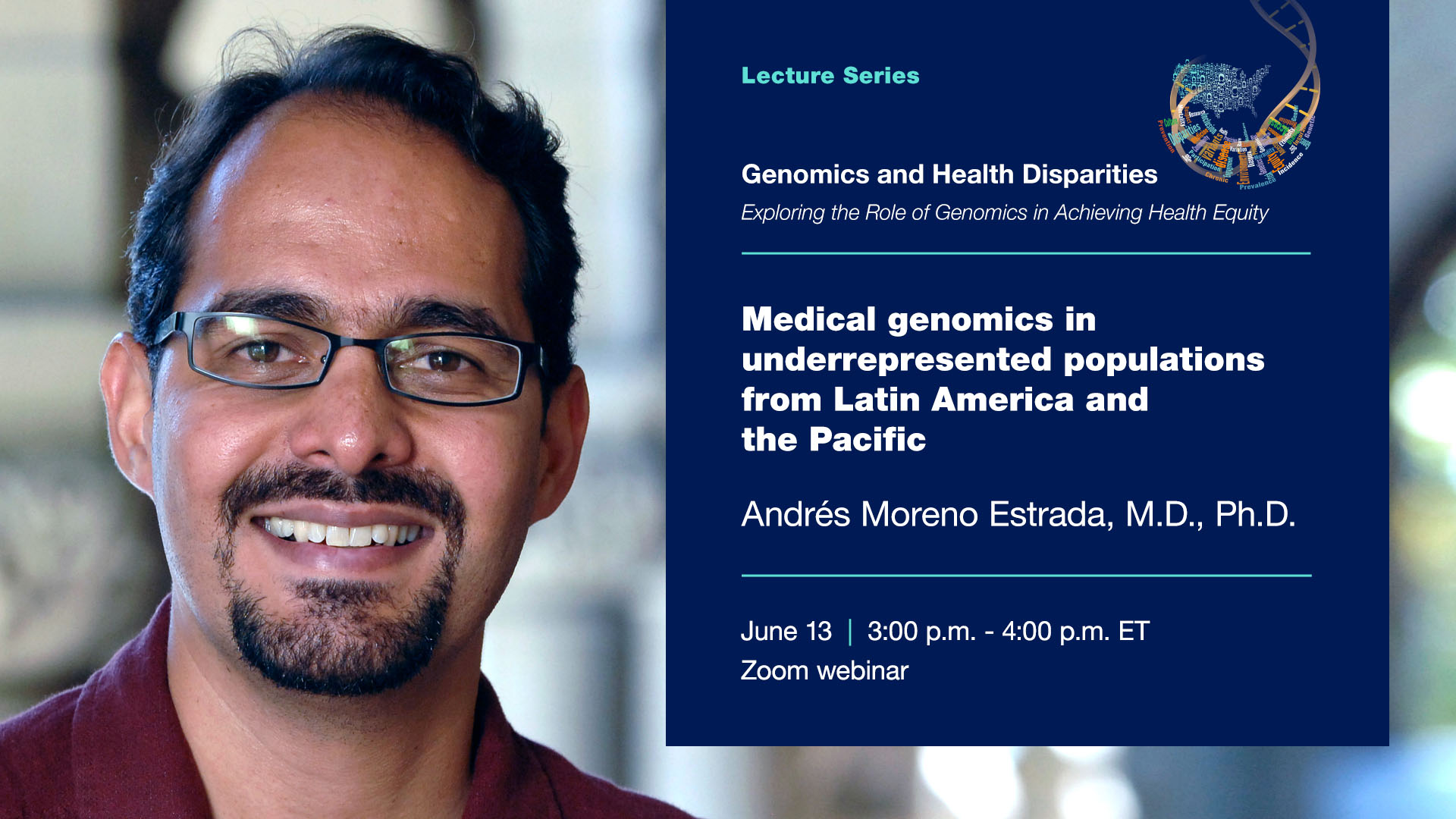 Dr. Moreno Gave a formal lecture webinar at the NIH Genomics and Health Disparities Institute, with the topic "Medical genomics in underrepresented populations from Latin America and the Pacific".
Dr. Moreno Gave a formal lecture webinar at the NIH Genomics and Health Disparities Institute, with the topic "Medical genomics in underrepresented populations from Latin America and the Pacific".
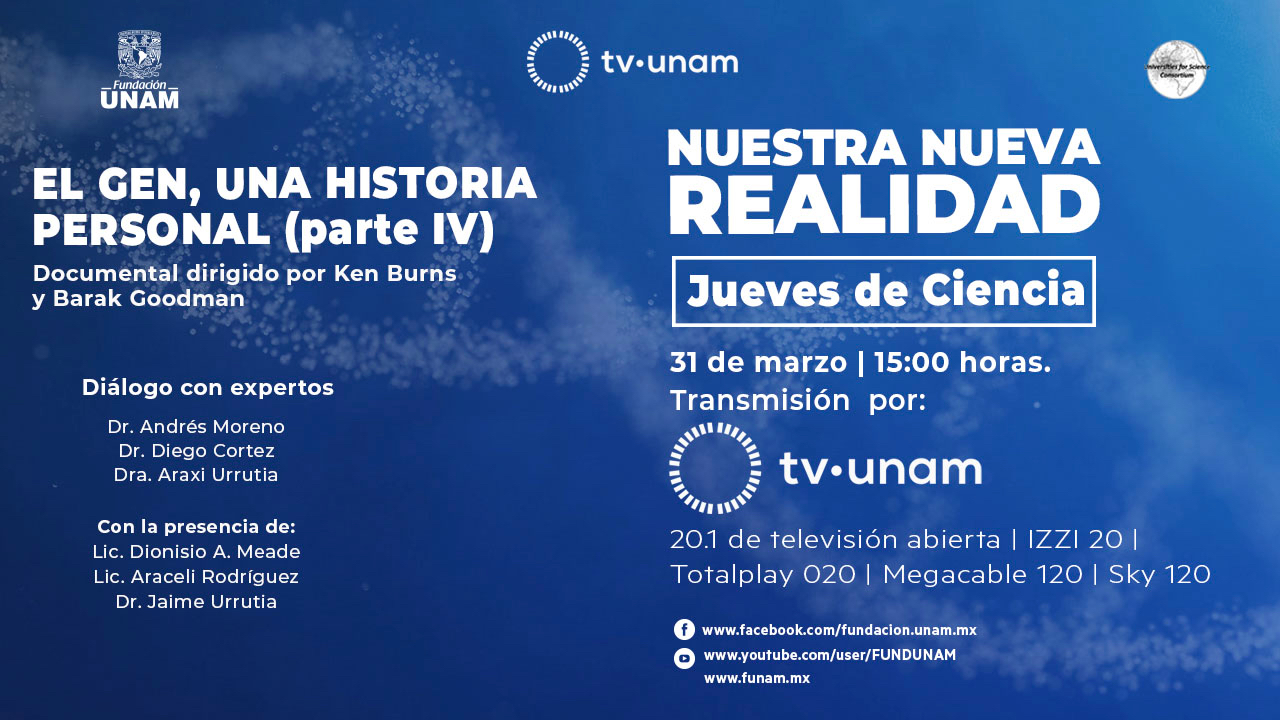 Dr. Moreno attended a science debate in TV UNAM entitled "El Gen, Una Historia Personal (parte IV)" to discuss new implications on the pandemic´s behavior, expectations and thoughts in order to survive these challenging times.
Dr. Moreno attended a science debate in TV UNAM entitled "El Gen, Una Historia Personal (parte IV)" to discuss new implications on the pandemic´s behavior, expectations and thoughts in order to survive these challenging times.
In this Sci-com podcast, Dr. Moreno shared insights about Polynesian migrations across the Pacific and how genomics allow to track down timing and sequence of these migrations.
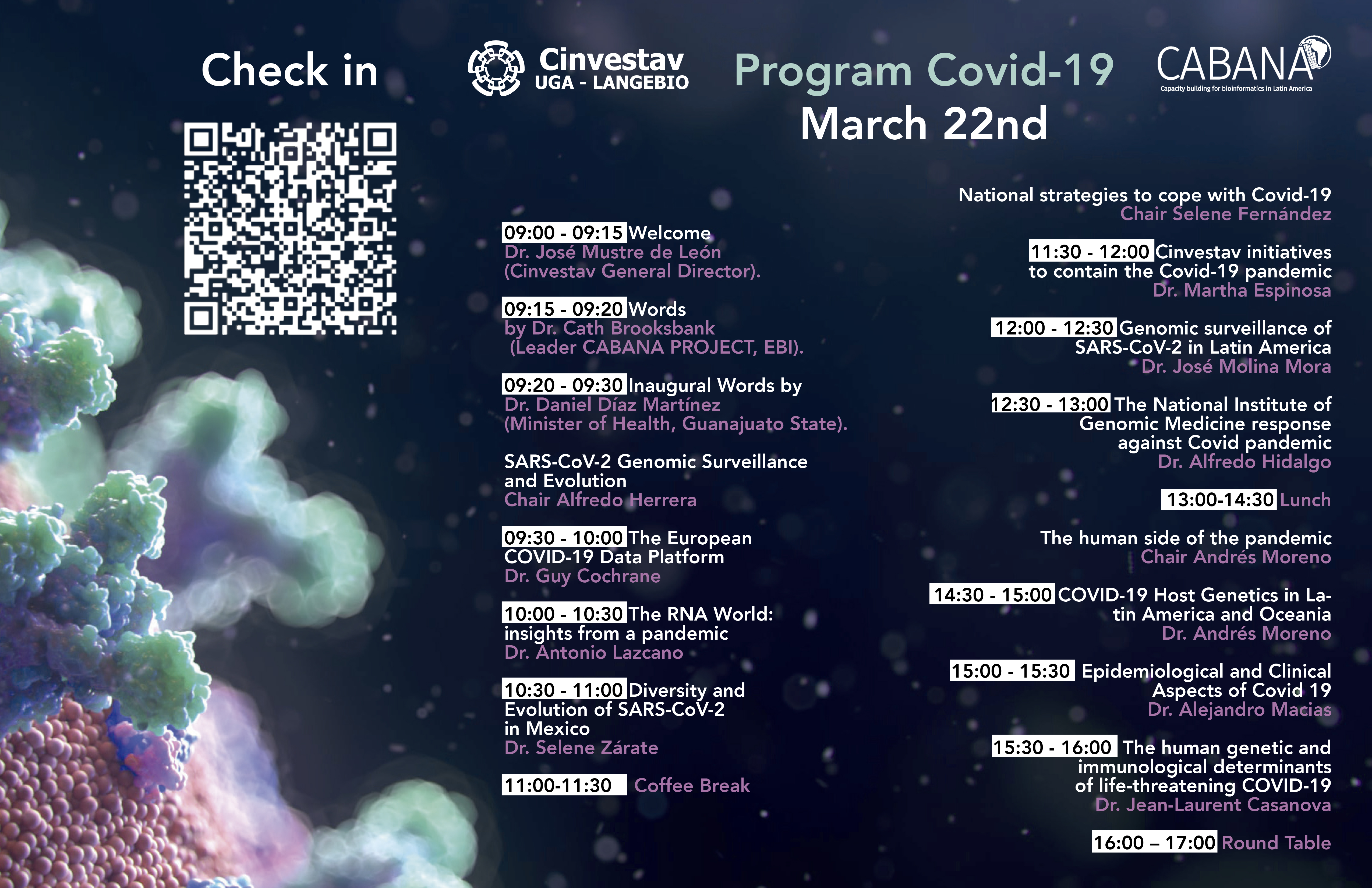 Dr. Moreno attended the CABANA Covid-19 Program at LANGEBIO as an invited speaker on the topic chair "The human side of the pandemic".
Dr. Moreno attended the CABANA Covid-19 Program at LANGEBIO as an invited speaker on the topic chair "The human side of the pandemic".
2021
We will be leading this collaborative project among other 10 Latin American Institutions, this network aims to build a Latin American cell map of immune blood cells and gallbladder tissue cell types from diverse Indigenous and mixed populations from six countries across the Americas (Mexico, Colombia, Peru, Chile, Brazil, and U.S. Latinos).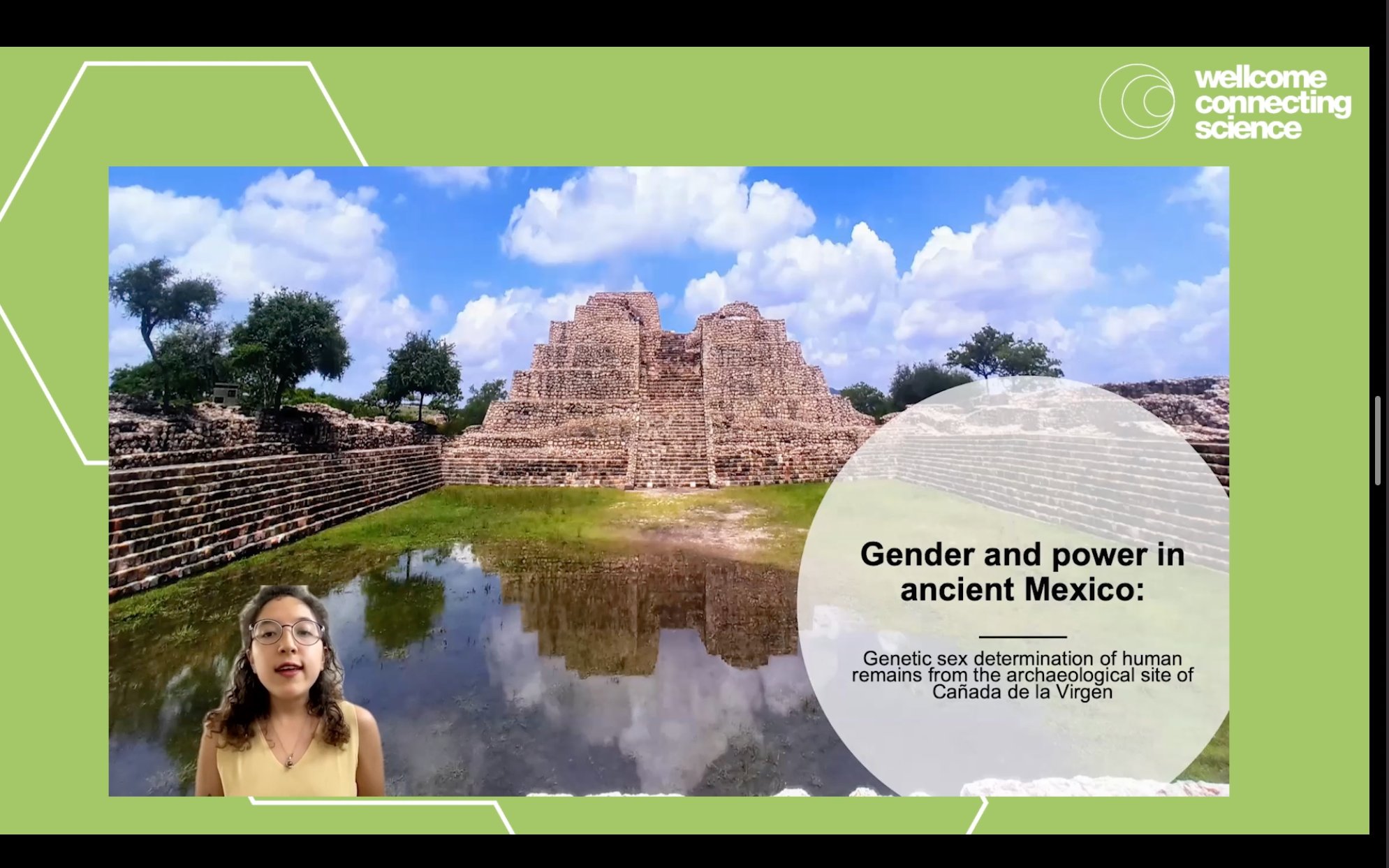 Our Masters student Daniela Orozco presenting at Human Evolution Conference 2021 her project of Ancient DNA in Cañada de la Virgen, Gto.
Our Masters student Daniela Orozco presenting at Human Evolution Conference 2021 her project of Ancient DNA in Cañada de la Virgen, Gto.
Nature Research Highlights
The Economist
Science Magazine
Smithsonian Magazine
The Guardian
2020
The New York Times
Nature News
Science
New Scientist
The Scientist
Smithsonian
National Geographic
Science News
IFLS
Gizmodo
Genomeweb
CBC
CNN
BBC
The Guardian
Fox
Daily Mail
Reuters
Jiji
Le Monde
ICDAbio
2019
2018
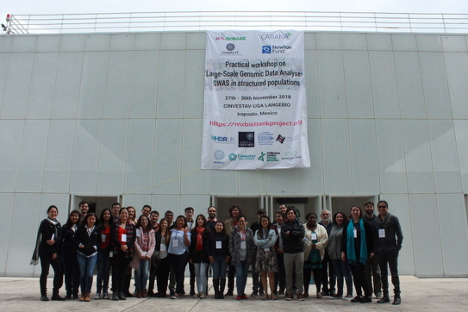 Practical workshop on Large-Scale Genomic Data Analyses: GWAS in structured populations. Irapuato, México. 2018-11-27 – 2018-11-30: Moreno-Estrada A. The Mexico Biobank Project.
Practical workshop on Large-Scale Genomic Data Analyses: GWAS in structured populations. Irapuato, México. 2018-11-27 – 2018-11-30: Moreno-Estrada A. The Mexico Biobank Project.
By Adriana Garmendia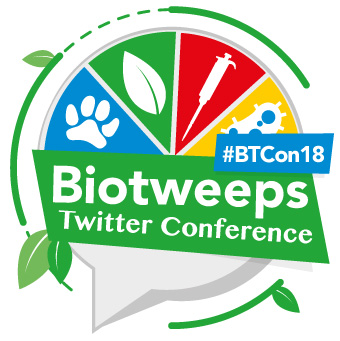 A conference on Twitter? Wait, what? Yes, social media is here and science needs to adapt for it. The Biotweeps Twitter Conference is a global event bringing together researchers from across the biological sciences to share and discuss their research with a social media audience. This year we decided to participate for the first time and we really enjoyed it!
A conference on Twitter? Wait, what? Yes, social media is here and science needs to adapt for it. The Biotweeps Twitter Conference is a global event bringing together researchers from across the biological sciences to share and discuss their research with a social media audience. This year we decided to participate for the first time and we really enjoyed it!
Can you imagine presenting your research work in only 4 tweets (280 characters x tweet)! For sure this was a challenge and a good exercise for us to address only essential information, but at the same time, trying to do catchy media content for a global audience.
Through posts, infographics, and videos we decided to present one of our most ambitious projects “The Mexican Biobank Project #MXB”, an international collaboration with diverse research and government institutions; which is creating the largest genomic biobank in Latinamerica to better understand how certain genetic markers correlate with infectious diseases and cardiometabolic traits. This information will help to create health strategies to tackle these diseases for a diverse population like Mexico.
Now more than ever it is necessary for scientists to share back their results and findings to the people, otherwise, all the knowledge will be restricted for only a few.
Check out our full presentation HERE and remember to follow us on Twitter @moreno_lab!
Science News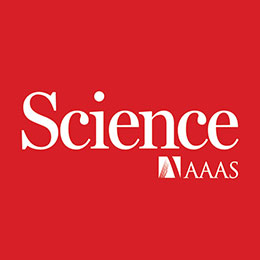 Juan Esteban Rodríguez and part of his work on Asian ancestry in Mexico got featured on Science News. You can read the full article in Spanish or English. Find the podcast here.
Juan Esteban Rodríguez and part of his work on Asian ancestry in Mexico got featured on Science News. You can read the full article in Spanish or English. Find the podcast here.
Human Population Genomics Lab We were thrilled to participate on #mexpopgen3 at LANGEBIO!
We were thrilled to participate on #mexpopgen3 at LANGEBIO!
2017
Science News How does the new Trump administration affect science?
In this article, Lizzie Wade explores how the new policies of President Trump will not only have a negative impact on his country but also to their neighbor country.
How does the new Trump administration affect science?
In this article, Lizzie Wade explores how the new policies of President Trump will not only have a negative impact on his country but also to their neighbor country.
Once Noticias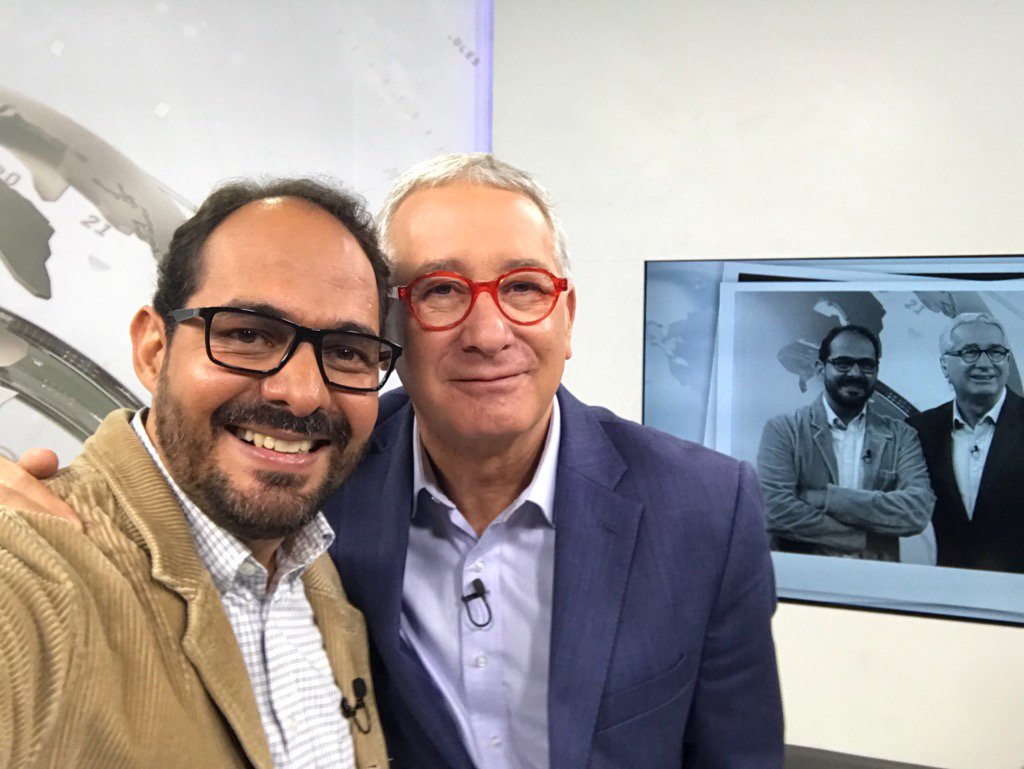 See Andrés share details about his life and career in this intimate interview with Javier Solórzano for Once Noticias. Click here. Warning! Unfortunately you need to know Spanish to hear about the times Andrés played volleyball in the golden beaches of Barcelona.
See Andrés share details about his life and career in this intimate interview with Javier Solórzano for Once Noticias. Click here. Warning! Unfortunately you need to know Spanish to hear about the times Andrés played volleyball in the golden beaches of Barcelona.
Human Population Genomics Lab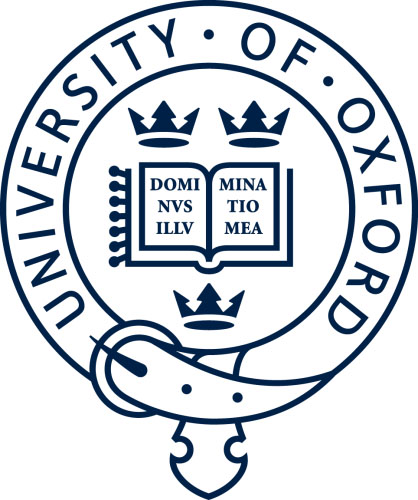
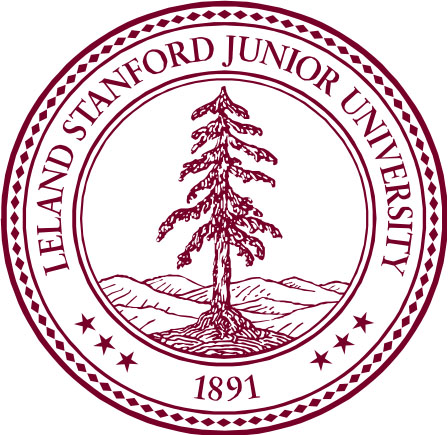 You are invited to apply to work on the Mexican Biobank Project, which aims to build one of the largest genetics biobanks in Latin America and to build capacity in big data science in medical genomics in admixed populations. The project is funded through CONACYT and the Research Councils UK (RCUK) and integrates teams in Mexico (LANGEBIO), the UK (Oxford) and the US (Stanford). The project will generate genetic data on 10,000 Mexican individuals with linked demographics and medical data, and measure antibody titers on a panel of approximately 20 pathogens that are naturally circulating in the Mexican population. This resource will provide research opportunities in population genetics and genetics of complex traits in an admixed population, and the opportunity to study the genetic determinants of seroreactivity to many common pathogens in Mexico. Click on the title for more information.
You are invited to apply to work on the Mexican Biobank Project, which aims to build one of the largest genetics biobanks in Latin America and to build capacity in big data science in medical genomics in admixed populations. The project is funded through CONACYT and the Research Councils UK (RCUK) and integrates teams in Mexico (LANGEBIO), the UK (Oxford) and the US (Stanford). The project will generate genetic data on 10,000 Mexican individuals with linked demographics and medical data, and measure antibody titers on a panel of approximately 20 pathogens that are naturally circulating in the Mexican population. This resource will provide research opportunities in population genetics and genetics of complex traits in an admixed population, and the opportunity to study the genetic determinants of seroreactivity to many common pathogens in Mexico. Click on the title for more information.
LANGEBIO It's our pleasure to announce the new Ancestry Service available at LANGEBIO's Genomic Services. We have at our disposition a genotyping platform of more than 1.7 million markers (SNPs) and a curated reference panel that allows us to estimate the contributions of different human populations in an individual's genome. Additionally, we can also report haplogroups derived from the mitochondrial and Y chromosome genomes. The service is now open to everyone, click on the title for more information!
It's our pleasure to announce the new Ancestry Service available at LANGEBIO's Genomic Services. We have at our disposition a genotyping platform of more than 1.7 million markers (SNPs) and a curated reference panel that allows us to estimate the contributions of different human populations in an individual's genome. Additionally, we can also report haplogroups derived from the mitochondrial and Y chromosome genomes. The service is now open to everyone, click on the title for more information!
Stanford Center for Latin American Studies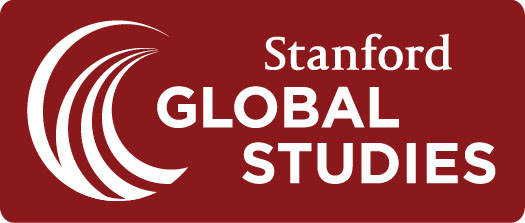 Andrés Moreno will be imparting a course titled The Genetic Footprint of Latin America and its Impact in a Multicultural Society. Find more information here.
Andrés Moreno will be imparting a course titled The Genetic Footprint of Latin America and its Impact in a Multicultural Society. Find more information here.
LANGEBIO/LIIGH
2016
PLOS Collections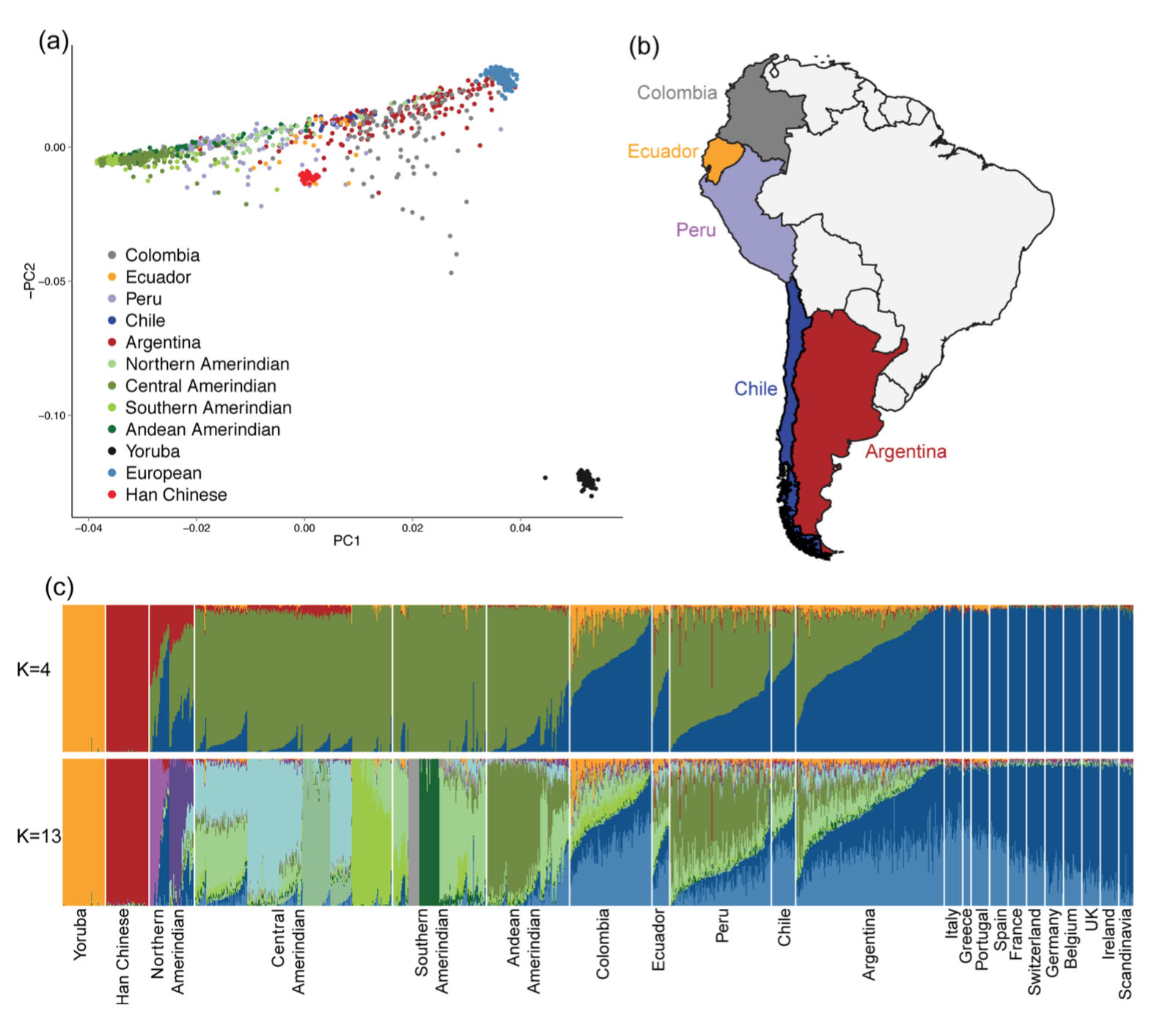
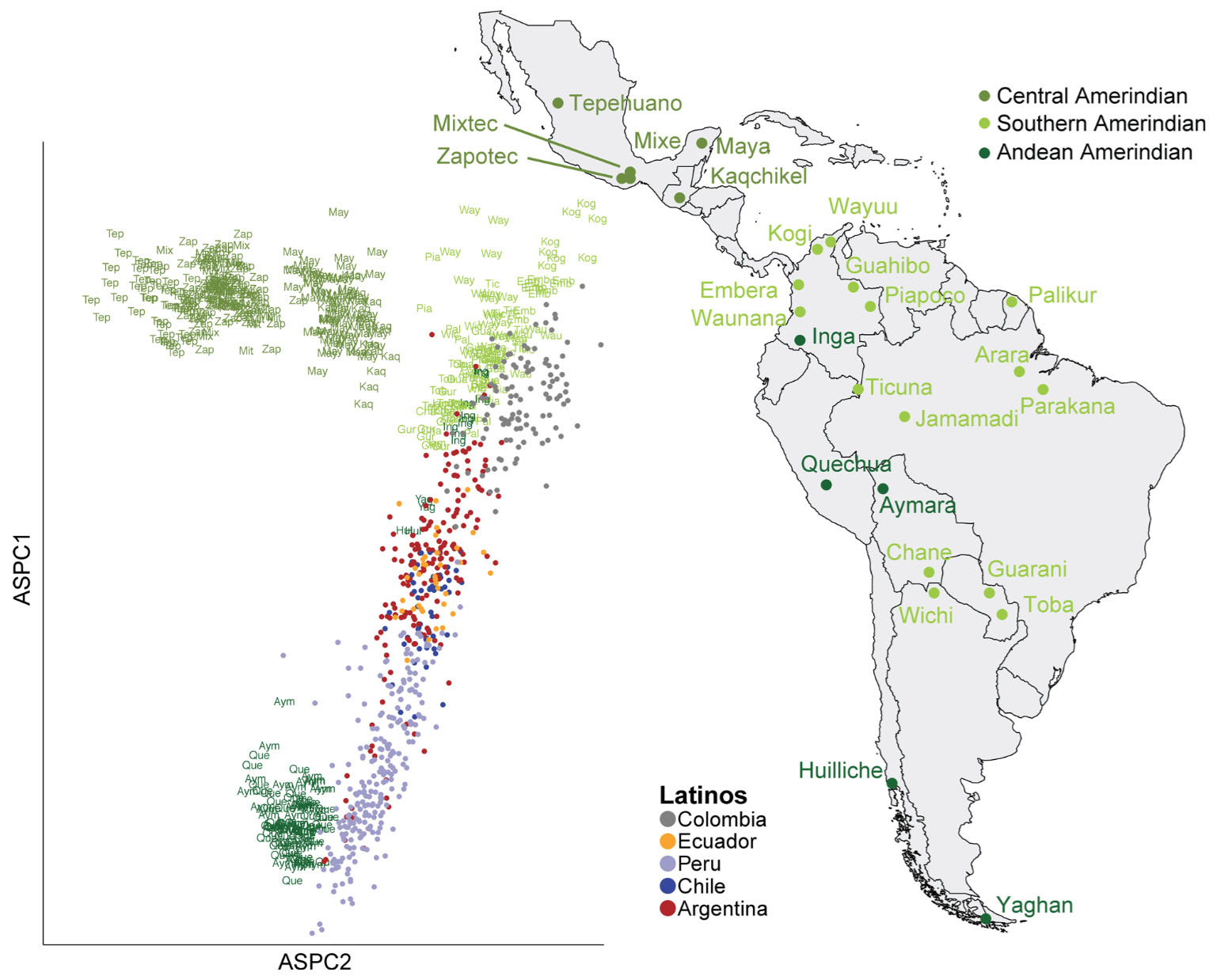
Stanford Health Policy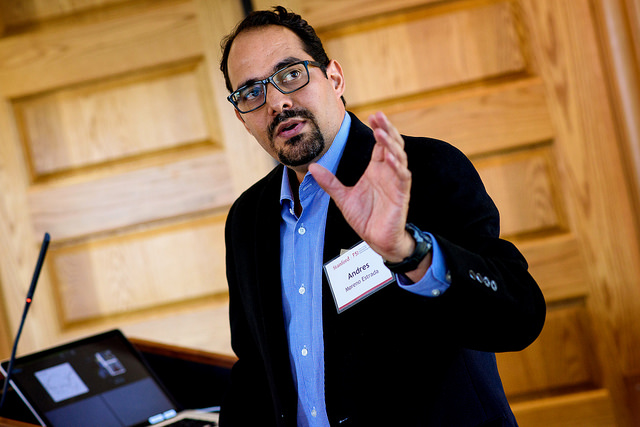
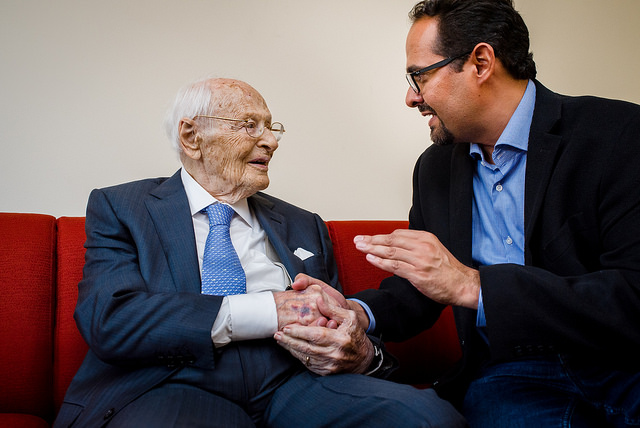
Stanford Health Policy
Academia Mexicana de Ciencias
Penn State Department of Anthropology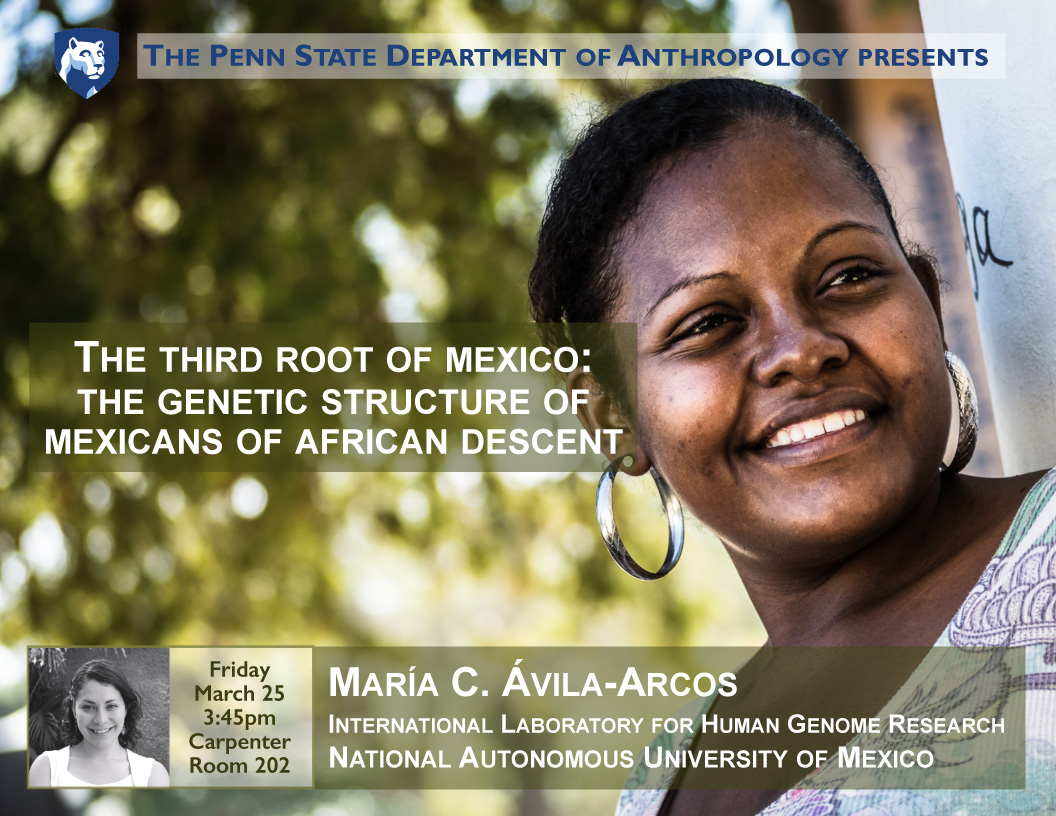
2015
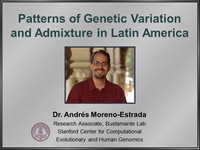 Patterns of genetic variation and admixture in Latin America
Patterns of genetic variation and admixture in Latin America
Dr. Andrés Moreno-Estrada – Stanford Center for Computational Evolutionary and Human Genomics, USA
Society for Molecular Biology and Evolution
Science
La Ventana Americana
Radio Bilingüe
2014
Nature News
Los Angeles Times
Newsweek
ABC News
2012
Stanford News
Stanford Medicine News Center
Stanford Medicine News Center
Dienekes Anthropology
2010
New Scientist
Carlos Bustamante's Website
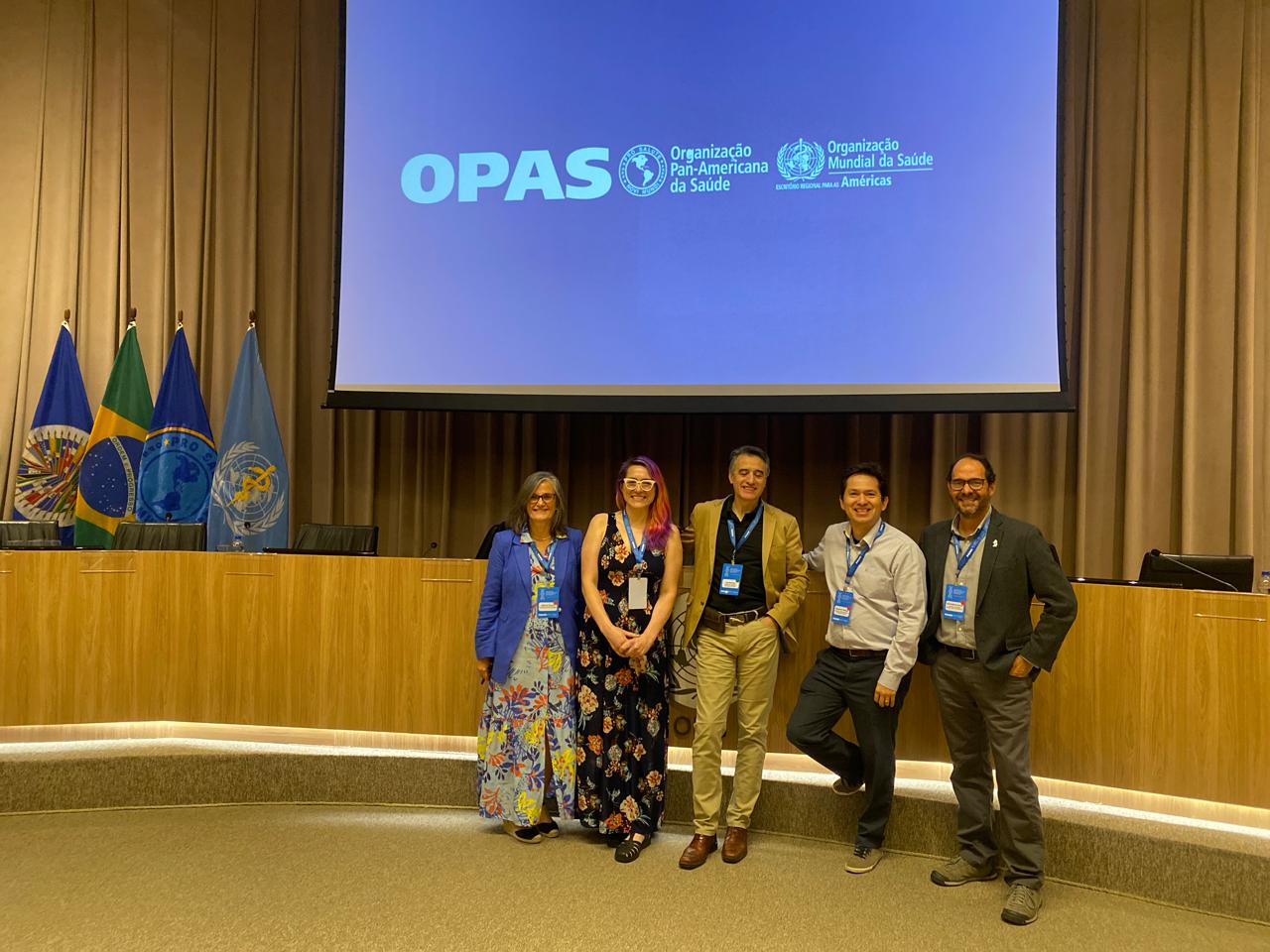 Dr. Andrés Moreno was invited to the Regional Meeting '' Equitable Generation of Knowledge and Translation of Human Genomic Research for Health in the Americas'' by the Pan American Health Organization in Brasilia, Brazil. Our P.I. was a representative leader from Mexico and Latin America within the expert committee for the equitable generation of genomic sciences in the Americas.
Dr. Andrés Moreno was invited to the Regional Meeting '' Equitable Generation of Knowledge and Translation of Human Genomic Research for Health in the Americas'' by the Pan American Health Organization in Brasilia, Brazil. Our P.I. was a representative leader from Mexico and Latin America within the expert committee for the equitable generation of genomic sciences in the Americas.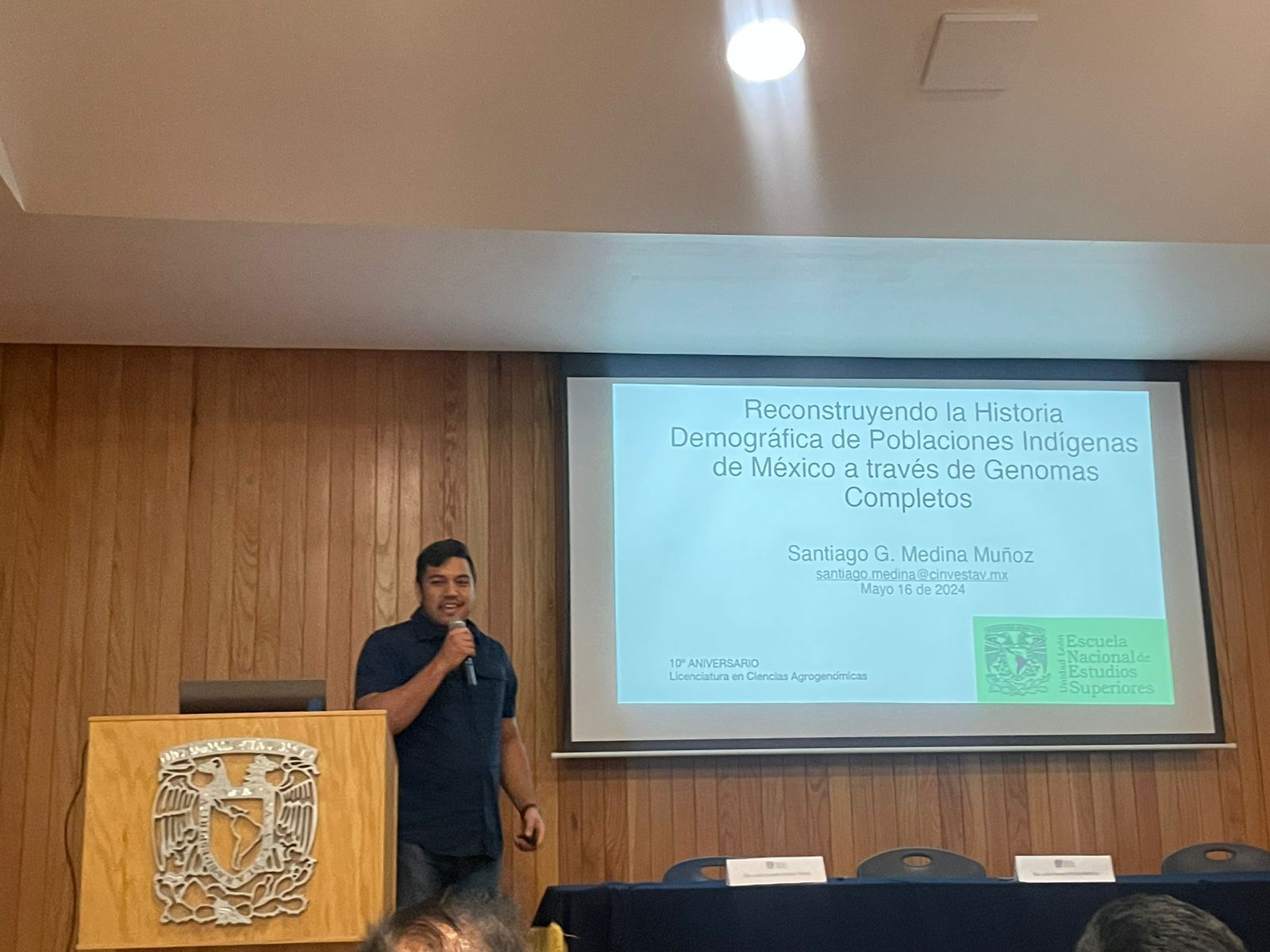 Our PhD student Santiago Medina participated at the 10th Anniversary of the Agrogenomics Science Degree of the UNAM in León, Guanajuato. Santiago's academic career at UNAM and MorenoLab at Cinvestav Irapuato has earned us great pride.
Our PhD student Santiago Medina participated at the 10th Anniversary of the Agrogenomics Science Degree of the UNAM in León, Guanajuato. Santiago's academic career at UNAM and MorenoLab at Cinvestav Irapuato has earned us great pride.